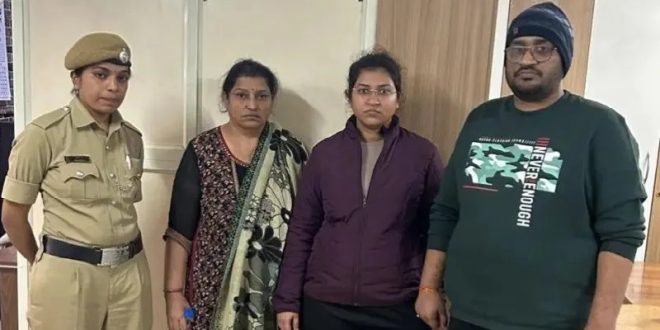24-12-2024
NEW DELHI: On the night of 9 December, a 34-year-old Indian man killed himself. Next to his body was a placard reading “justice is due”.
Atul Subhash left a detailed 24-page suicide note and an 81-minute video in which he blamed the trouble in his marriage and divorce proceedings.
 The letter and the video, which contain distressing details about his life, have gone viral on social media and caused outrage.
The letter and the video, which contain distressing details about his life, have gone viral on social media and caused outrage.
The software engineer from the southern city of Bengaluru accused his estranged wife Nikita Singhania, her mother and brother of sustained harassment and torture accusations they denied. The three were arrested a few days later and a court has remanded them for 14 days.
News of Subhash’s tragic death has also galvanized men’s rights activists and started a wider debate around India’s tough dowry law which was designed to protect women from harassment and even murder. Singhania had accused Subhash and his family of harassing her for dowry.
Many argue that with cases of divorce steadily rising, the law is now being misused by women to harass their husbands, even forcing them to kill themselves. India’s top court has also weighed in, with one judge describing it as “legal terrorism” that was “intended to be used as a shield and not as an assassin’s weapon”.
Women’s activists, however, point out that demands for large dowry payments from husbands’ families still continues to kill thousands of women every year.
Subhash and Singhania married in 2019, but had been living apart for three years and Subhash said he was not allowed to meet their four-year-old son. His wife, he alleged, had filed “false court cases”, accusing him of cruelty, dowry harassment and various other wrongdoings.
In the video, he accused the Singhania family of “extortion” and said they had demanded 30m rupees ($352,675; £279,661) to withdraw the cases, 3m rupees for visitation rights to their son and asked to raise the monthly maintenance from 40,000 rupees to 200,000 rupees.
 He then spoke about the dozens of long trips he made over the past few years to attend court hearings and accused a judge of harassment, seeking a bribe from him and mocking him. A notice which appears to have been issued by the judge refers to the allegations as “baseless, immoral and defamatory”.
He then spoke about the dozens of long trips he made over the past few years to attend court hearings and accused a judge of harassment, seeking a bribe from him and mocking him. A notice which appears to have been issued by the judge refers to the allegations as “baseless, immoral and defamatory”.
News of the suicide prompted a firestorm of protests in several cities. Many took to social media to demand justice for Subhash.
They said his suicide should be treated as a case of murder and targeted Singhania, demanding she be arrested and sent to prison for life.
On X (formerly Twitter), thousands tagged the American multinational firm where she worked, demanding that they sack her.
Following the outrage, the police in Bengaluru opened an inquiry against those named in the suicide note. On 14 December, Singhania, her mother and brother were arrested on charges of “abetment to suicide”.
During interrogation, Singhania denied the allegation that she had been harassing Subhash for money, Times of India quoted the police as saying.
In the past, Singhania had also levelled grave charges against her husband. In her 2022 petition for divorce, she had accused him, his parents and brother of harassing her for dowry. She said they had been unhappy with the gifts her parents had given during the wedding and demanded an additional 1m rupees.
Dowries have been outlawed in India since 1961, but the bride’s family is still expected to gift cash, clothes and jewellery to the groom’s family. According to a recent study, 90% of Indian marriages involve them and payments between 1950 and 1999 amounted to a quarter of a trillion dollars. (BBC)
 Pressmediaofindia
Pressmediaofindia




